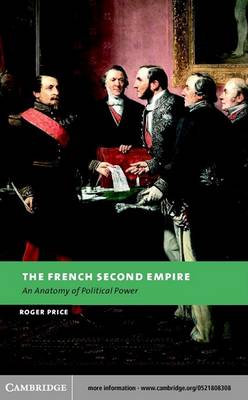New Studies in European History
2 total works
This book is about a major historical figure, Napoleon III, and a political regime. It examines how Louis-Napoleon Bonaparte (nephew of the first Napoleon) was able to secure election as President of the Republic and subsequently to launch a coup d'etat to establish a Second Empire. It then considers the ways in which power was exercised by the new imperial regime. Later, apparent stability led Napoleon III to engage in a difficult process of transition towards a more liberal regime; but at the point of success the decision was taken to go to war against Prussia which resulted in a catastrophic defeat and the destruction of his regime. This is a most thoroughly researched book on the Second Empire, which makes a contribution to our knowledge of a vitally important period of French history following the 1848 revolution and the intense mid-century crisis.
This 2004 book is about politicisation and political choice in the aftermath of the February Revolution of 1848, and the emergence of democracy in France. The introduction of male suffrage both encouraged expectations of social transformation and aroused intense fear. In these circumstances the election of Louis-Napoleon Bonaparte as President of the Republic - and his subsequent coup d'etat - were the essential features of a counter-revolutionary process which involved the creation of a system of democracy as the basis of regime legitimacy and as a prelude to greater liberalisation. The state positively encouraged the act of voting. But what did it mean? How did people perceive politics? How did communities and groups participate in political activity? These and many other questions concern the relationships between local issues and personalities, and the national political culture, all of which impinged on communities increasingly as a result of substantial social and political change.

